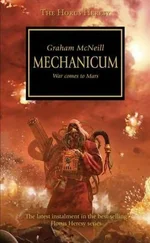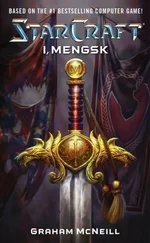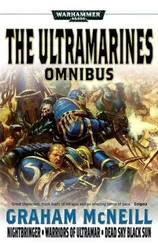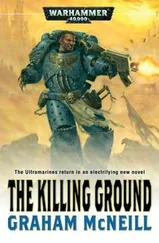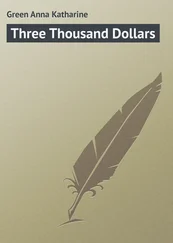Graham McNeill - A Thousand Sons
Здесь есть возможность читать онлайн «Graham McNeill - A Thousand Sons» весь текст электронной книги совершенно бесплатно (целиком полную версию без сокращений). В некоторых случаях можно слушать аудио, скачать через торрент в формате fb2 и присутствует краткое содержание. Жанр: Боевая Фантастика. Описание произведения, (предисловие) а так же отзывы посетителей доступны на портале библиотеки ЛибКат.
- Название:A Thousand Sons
- Автор:
- Жанр:
- Год:неизвестен
- ISBN:нет данных
- Рейтинг книги:3 / 5. Голосов: 1
-
Избранное:Добавить в избранное
- Отзывы:
-
Ваша оценка:
- 60
- 1
- 2
- 3
- 4
- 5
A Thousand Sons: краткое содержание, описание и аннотация
Предлагаем к чтению аннотацию, описание, краткое содержание или предисловие (зависит от того, что написал сам автор книги «A Thousand Sons»). Если вы не нашли необходимую информацию о книге — напишите в комментариях, мы постараемся отыскать её.
A Thousand Sons — читать онлайн бесплатно полную книгу (весь текст) целиком
Ниже представлен текст книги, разбитый по страницам. Система сохранения места последней прочитанной страницы, позволяет с удобством читать онлайн бесплатно книгу «A Thousand Sons», без необходимости каждый раз заново искать на чём Вы остановились. Поставьте закладку, и сможете в любой момент перейти на страницу, на которой закончили чтение.
Интервал:
Закладка:
its people had no knowledge of geology, the titanic forces of orogenic movement, compressional
energies and isostatic uplift, they knew enough to know that the Mountain was too vast, too
monumental, to be a natural formation.
Set in the heart of an undulating salt plain the ancients of the Aghoru claimed had once been at
the bottom of an ocean, the Mountain rose to a height of nearly thirty kilometres, taller even than
Olympus Mons, the great Fabricator’s forge on Mars.
It dominated the blazing, umber sky, a graceful, soaring peak shaped like an incredible tomb,
crafted for some ancient king, of magnificent, cyclopean scale. No regular lines formed the
mountain, and no artifice of mankind had shaped its rugged flanks, but one look at the Mountain
was enough to convince even the most diehard sceptic that it had been crafted by unnatural means.
Nothing grew on its rocky sides, no plants, gorse or even the thinnest of prairie grasses. The
earth surrounding the Mountain shimmered in the baking heat of the planet’s sun, which hung low
on the horizon like an overripe fruit.
Despite the heat, the rocks of the Mountain were cold to the touch, smooth and slick as though
freshly raised from the depths of a black ocean. Sunlight abhorred its sides, its shadowed valleys,
sunken grabens and sheared clefts dark and cold, as though it had been built atop some frozen
geyser that seeped its icy chill into the rock by some strange, geological osmosis.
Surrounding the rumpled skirts of the Mountain, scattered collections of raised stones, each
taller than three men, were gathered in loose circles. Such monuments should have been towering
achievements, incredible feats of engineering by a culture without access to mechanical lifting
equipment, mass-reducing suspensor gear or the titanic engines of the Mechanicum. But in the face
of the Mountain’s artificial origins they were primitive afterthoughts, specks against the stark,
brooding immensity of its impossibility. On a world such as this, what force could raise a mountain?
None of the many people gathered on Aghoru could answer that question, though some of the
greatest, most inquisitive and brilliant minds bent their every faculty to answer it.
To the Aghoru, the Mountain was the Axis Mundi of their world, a place of pilgrimage.
8
= Page 9 =
To the warrior-scholars of the Thousand Sons, the Mountain and its people were a curiosity, a
puzzle to be solved and, potentially, the solution to a riddle their glorious leader had sought to
unlock for nearly two centuries.
On one thing, both cultures agreed wholeheartedly. The Mountain was a place of the dead.
“Can you see him?” asked the voice, distant and dreamlike.
“No.”
“He should be back by now,” pressed the voice, stronger now. “Why isn’t he back?”
Ahriman descended through the Enumerations, feeling the psychic presence of the three Astartes
gathered beneath the scarlet canopy of his pavilion with senses beyond the rudimentary ones nature
had seen fit to gift him. Their potent psyches hummed through their flesh like chained thunder, that
of Phosis T’kar tense and choleric, Hathor Maat’s lugubrious and rigidly controlled.
Sobek’s aetheric field was a tiny candle next to the blazing suns they carried within them.
Ahriman felt his subtle body mesh with his physical form, and opened his eyes. He broke the
link with his Tutelary and looked up at Phosis T’kar. The sun was low, yet still powerfully bright,
and he squinted against it, shielding his eyes from the reflected glare of sunlight from the salt flats.
“Well?” demanded Phosis T’kar.
“I don’t know,” he said. “Aaetpio can see no farther than the deadstones.”
“Nor can Utipa,” said Phosis T’kar, squatting on his haunches and flicking up puffs of salt dust
with irritated thoughts. Ahriman felt each one like an electric spark in his mind. “Why can’t the
Tutelaries see beyond them?”
“Who knows?” asked Ahriman, more troubled than he cared to admit.
“I thought you’d be able to see further. You’re Corvidae after all.”
“That wouldn’t help here,” said Ahriman, rising smoothly from a cross-legged position, and
dusting glittering salt crystals from the inscribed crimson plates of his armour. His body felt stiff,
and it took a moment for muscle memory to reassert control of his limbs after a flight in the aether.
“In any case,” he said, “I don’t think it would be wise to try on this world. The walls between us
and the Great Ocean are thin, and there’s a lot of unchannelled energy here.”
“You’re probably right,” agreed Phosis T’kar, sweat dripping down his shaven scalp along the
line of an elliptical scar that ran from his crown to the nape of his neck. “You think that’s why we
linger on this planet?”
“Entirely likely,” said Ahriman. “There is power here, but the Aghoru have lived in balance for
centuries without suffering any ill-effects or mutations. That has to be worth investigating.”
“Indeed it is,” said Hathor Maat, apparently unaffected by the furnace heat. “There’s precious
little else of interest on this parched rock. And I don’t trust the Aghoru. I think they’re hiding
something. How does anyone live in a place like this for so long without any signs of mutation?”
Ahriman noted the venom with which his fellow captain spat the last word. Unlike Ahriman or
Phosis T’kar, Hathor Maat’s skin was pale, like the smoothest marble, his golden hair like that
painted on the heroic mosaics of the Athenaeum. Not a bead of sweat befouled Maat’s sculpted
features.
“I don’t care how they’ve done it,” said Phosis T’kar. “This place bores me. It’s been six
months, and we should be making war in the Ark Reach Cluster. Lorgar’s 47th are expecting us,
Russ too. And trust me, you don’t want to keep the Wolves waiting any longer than you must.”
“The primarch says we stay, so we stay,” said Ahriman.
Sobek, his dutiful Practicus, stepped forward and offered him a goblet of water. Ahriman
drained the cool liquid in a single swallow. He shook his head when Sobek held a bronze hes out to
refill it.
“No, take it to remembrancer Eris,” he commanded. “She is at the deadstones and has more need
of it than I.”
9
= Page 10 =
Sobek nodded and left the shade of the canopy without another word. Ahriman’s battle-plate
cooled him, recycling the moisture of his body and turning aside the worst of the searing heat. The
remembrancers that had come to the planet’s surface were not so fortunately equipped, and dozens
had already been returned to the Photep’s Medicae decks suffering from heatstroke and dehydration.
“You indulge the woman, Ahzek,” said Hathor Maat. “It’s not that hot.”
“Easy for you to say,” replied Phosis T’kar, wiping sweat from his skull with a cleaning rag.
“We can’t all be Pavoni. Some of us have to deal with this heat on our own.”
“With further study, meditation and mental discipline you might one day achieve a mastery
equal to mine,” replied Maat, and though his tone was jovial, Ahriman knew he wasn’t joking. “You
Raptora are belligerent sorts, but eventually you might be able to master the necessary
Enumerations.”
Phosis T’kar scowled, and a dense cluster of salt crystals flew from the ground beside him,
aimed at Hathor Maat’s head. Before it reached its target, the warrior’s hand flashed, quick as
lightning, and caught it.
Читать дальшеИнтервал:
Закладка:
Похожие книги на «A Thousand Sons»
Представляем Вашему вниманию похожие книги на «A Thousand Sons» списком для выбора. Мы отобрали схожую по названию и смыслу литературу в надежде предоставить читателям больше вариантов отыскать новые, интересные, ещё непрочитанные произведения.
Обсуждение, отзывы о книге «A Thousand Sons» и просто собственные мнения читателей. Оставьте ваши комментарии, напишите, что Вы думаете о произведении, его смысле или главных героях. Укажите что конкретно понравилось, а что нет, и почему Вы так считаете.




